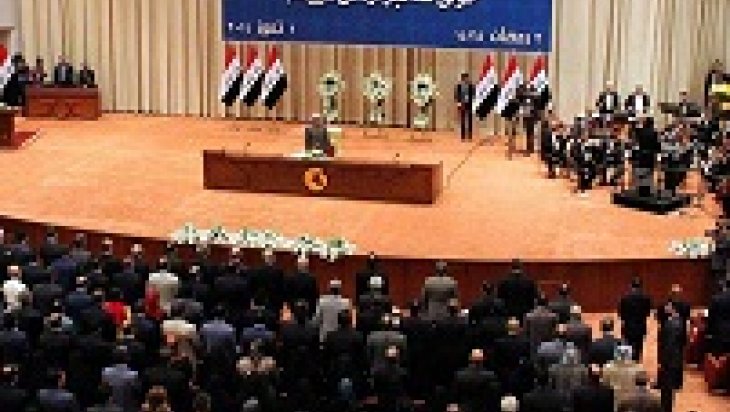The Political Parties Law In Iraq

Since the founding of the Republic in Iraq (1958), no law was enacted for regulating the status of political parties. The reason is that there were no political parties until 1968. After 1968, only the Baath party was legally present in the political field. Even so, the Baath regime enacted a “Political Parties Law” in 1991 only for show. Needless to say, the regime did not allow any political faction other than the Baath to form a party. After the invasion of Iraq in 2003 by the United States and its allies, the interim administration of the invasion forces enacted a law in 2004 titled “Law of Parties, Political Organizations and Political Delegations”. Nevertheless no party, organization or group has been founded or has based its activities in accordance with this law up to now.
As the demands for reform increased all around the country in the last six months and in this context as popular protests sprung up in all cities and towns of Iraq, both the people and Shiite religious authorities raised their calls for reform and radical changes. Therefore, on 27 August 2015, after long years of suspension and disagreement, the parliamentary session has voted unanimously the draft for the Political Parties Law. The law will come into force 60 days after its publication in the official gazette and the affirmation of the President.
What does the Political Parties Law bring into Iraqi Politics?
-According to the law, each Iraqi (woman or man) is allowed to establish a political party or organization.
-A political party cannot be based upon the principles of chauvinism, terrorism, tekfir (declaring someone an unbeliever) or sectarian, racial and ethnic fanaticism.
-The party leadership must be elected on democratic basis.
-The objectives and principles of parties are not allowed to contradict with the constitution; to be formed in military or paramilitary methods and to have relations with any armed groups.
-Parties are not allowed to have contacts with non-Iraqi entities in organizational and financial aspects.
-For establishing a party, it is needed to present an application signed by at least seven people at the “Department of Parties and Political Organizations” in the Independent Electoral Commission. Along with the application, internal regulation documents, political program papers and a list comprising 2,000 members from different provinces are needed. According to the law, a specific woman quota is also needed. However, for the parties that will represent minorities, which the law defines as “Ethnic Entities”, it is only needed to present 500 members.
-The founding committee of the party has to pay 25 million Iraqi dinars (approximately 22,000 US dollars) as a registration fee.
-The Department of Parties and Political Organizations will decide in favor of or against the issue in 15 days. If no decision is made, the application is considered accepted. If the application is refused, the decision can be taken to the relevant court. The verdict of the court can be contested at the Federal Court.
-With the approval of the application, party gains legal entity.
-Parties can attend elections and political life, hold meetings and peaceful rallies and publish newspapers, journals and websites of themselves.
-According to the law, parties can be abolished only by a court verdict and on special occasions. The court’s verdict can be contested at the Supreme Federal Court.
-Parties receive financial support from the state. The twenty percent of the allocated fund is equally distributed among all parties. The remaining eighty percent is distributed to the parties
- The Law grants 1 year duration for the existing parties to adopt their current situation to the new regulations.
As it is seen, the new law aims to establish a system that is theoretically democratic, respects the human rights and regulates Iraq’s problematic political system. Yet it is questionable as to how this new system will perform in Iraq, where militia forces relying on terrorism and external forces operate freely. It is difficult for parties that lack popular support and financial power to adopt to this system. The new law seeks to ban the parties’ contact with the non-Iraqi entities in organizational and financial aspect, thus aiming to prevent the external forces to meddle with Iraqi affairs and severe the power of political groups who are funded from abroad. In practice, even though it is not impossible for the Iraqi government to achieve this in the current political setting, it seems extremely difficult.
In Iraq, fully implementing this law will take a great deal of time. Considering that it came into force today, the parties have only 14 months ahead to adopt. It is our wish that our neighbor Iraq has a democratic regime that upholds the rule of law. Yet it is impossible to predict as to what a country such as Iraq will face in its political life.







